Wednesday, February 23rd, 2022
12:00 – 1:30 p.m. ET
via Zoom
With India — one fifth of humanity and the world’s largest democracy — completing 75 years of independence, it is not only a time for reflection but also a time to take bold actions for an inclusive, sustainable, and prosperous future. The shadow of COVID-19 looms large over the economy despite some signs of economic recovery. The pandemic has exposed major structural weaknesses in the economy as well as its governance. Beyond the pandemic, other major systemic challenges – climate change, disruptive technology, rising inequality, and rising majoritarianism — merit urgent attention.
For India, doing more of the same will yield results we have become familiar with – higher inequality, poor education and health outcomes, high youth unemployment, weak investment growth, diminishing prospects in agriculture and industry, and a problematic banking sector. To tackle the challenges, India needs fundamental change across a range of areas – human capital, technology, agriculture, finance, trade, public-service delivery, and more. New ideas and strategies are needed.
The seminar discussed how India can use the next twenty-five years to restructure its economy, rejuvenate its democratic energy, and unshackle its potential.
The speakers in this webinar were Ravinder Kaur (University of Copenhagen) and Ajay Chhibber (GWU and Atlantic Council), and was moderated by IIEP Distinguished Visiting Scholar Sunil Sharma, with welcoming remarks by IIEP Director Jay Shambaugh.
This event was cosponsored by the Sigur Center.
About the Speakers:
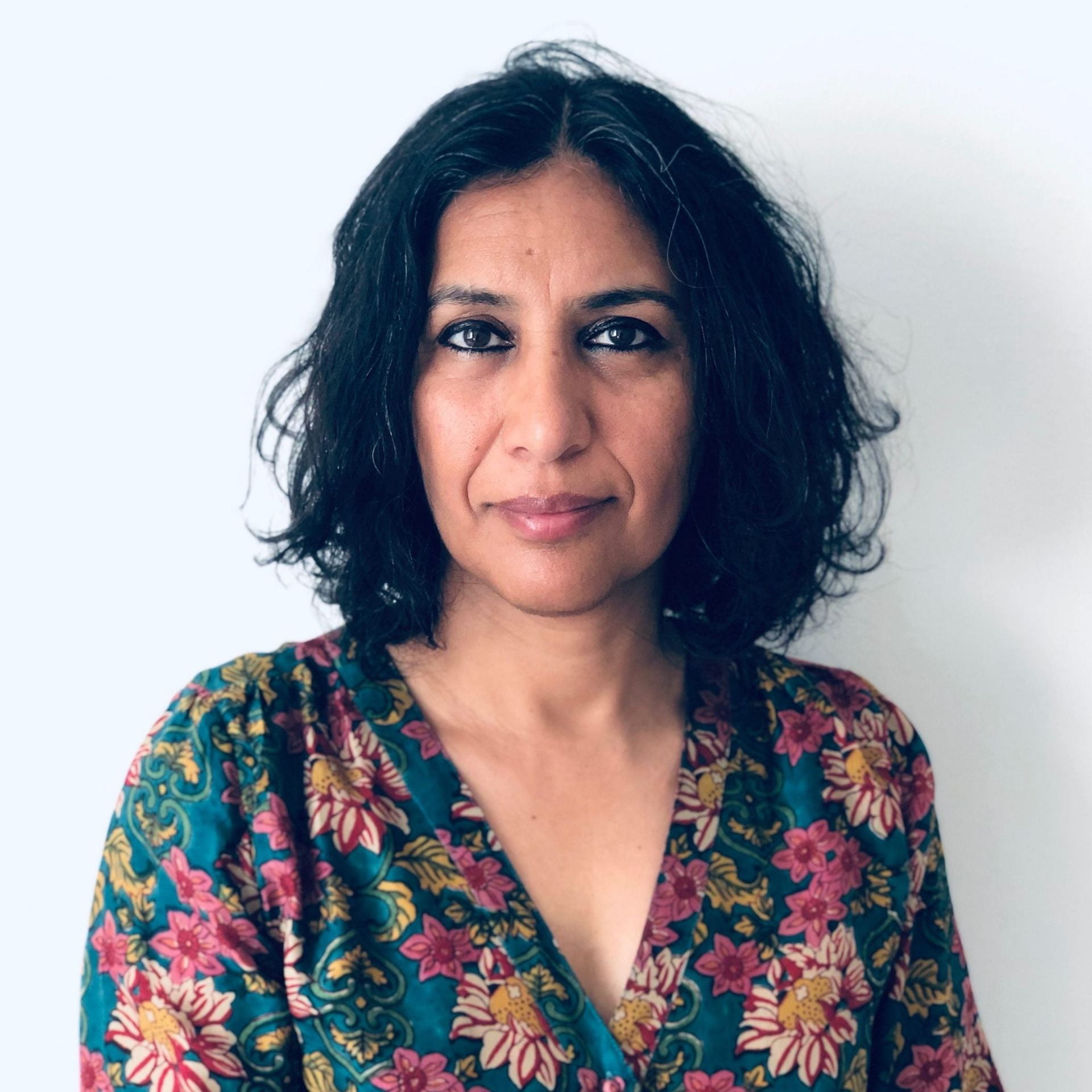 Ravinder Kaur is a historian of contemporary India. She is Associate Professor of Modern South Asian Studies and the Director of the Centre of Global South Asian Studies at the University of Copenhagen. Her core research focuses on the processes of capitalist transformations in twenty-first-century India. This is the subject of her most recent book Brand New Nation: Capitalist Dreams and Nationalist Designs in Twenty-First-Century India (Stanford University Press, 2020). This work was selected as the “Financial Times Best Book of the Year” in 2020 and longlisted for the “Kamaladevi Chattopadhyay NIF Book Prize” in 2021. She is also the author of Since 1947: Partition Narratives among the Punjabi Migrants of Delhi (Oxford University Press, 2007; 2nd edition, 2018).
Ravinder Kaur is a historian of contemporary India. She is Associate Professor of Modern South Asian Studies and the Director of the Centre of Global South Asian Studies at the University of Copenhagen. Her core research focuses on the processes of capitalist transformations in twenty-first-century India. This is the subject of her most recent book Brand New Nation: Capitalist Dreams and Nationalist Designs in Twenty-First-Century India (Stanford University Press, 2020). This work was selected as the “Financial Times Best Book of the Year” in 2020 and longlisted for the “Kamaladevi Chattopadhyay NIF Book Prize” in 2021. She is also the author of Since 1947: Partition Narratives among the Punjabi Migrants of Delhi (Oxford University Press, 2007; 2nd edition, 2018).
 Ajay Chhibber is a Distinguished Visiting Scholar, Institute for International Economic Policy, George Washington University and Non-Resident Senior Fellow at the Atlantic Council. He was the first Director General, Independent Evaluation Office, India, and Distinguished Visiting Professor at the NIPFP. He served as Assistant Secretary General, UN, and Assistant Administrator, UNDP. At the World Bank he was the Country Director in Turkey and Vietnam, and Director of the 1997 World Development Report. He has a PhD from Stanford University, an MA from the Delhi School of Economics and was awarded the David Rajaram Prize for best all-rounder at St. Stephen’s College, Delhi University.
Ajay Chhibber is a Distinguished Visiting Scholar, Institute for International Economic Policy, George Washington University and Non-Resident Senior Fellow at the Atlantic Council. He was the first Director General, Independent Evaluation Office, India, and Distinguished Visiting Professor at the NIPFP. He served as Assistant Secretary General, UN, and Assistant Administrator, UNDP. At the World Bank he was the Country Director in Turkey and Vietnam, and Director of the 1997 World Development Report. He has a PhD from Stanford University, an MA from the Delhi School of Economics and was awarded the David Rajaram Prize for best all-rounder at St. Stephen’s College, Delhi University.
Ajay is the co-author, along with Salman Anees Soz, of the recently published book Unshackling India: Hard Truths and Clear Choices for Economic Revival (HarperCollins, 2022). Unshackling India examines the question: Can India use the next twenty-five years, when it will reach the hundredth year of independence, to not only restructure its economy but rejuvenate its democratic energy, unshackle its potential, and become a genuinely developed economy by 2047? The book argues that India can foster a prosperous and inclusive economy if it sets its mind to it, acknowledges the hard truths and lays out the clear choices and new ideas India must adopt towards that end.
About the Moderator:
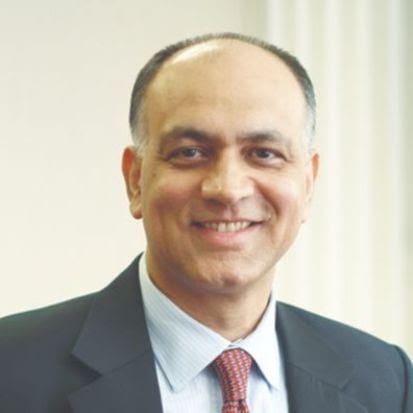 Sunil Sharma is a Distinguished Visiting Scholar at the Institute for International Economic Policy, Elliott School of International Affairs, The George Washington University, Washington DC, USA, and a Senior Associate at the Council on Economic Policies, Zurich, Switzerland. He was Assistant Director in the IMF’s Research Department from 2015-2018, and the Director of the IMF-Singapore Regional Training Institute (STI) in Singapore from 2006-2015. Before moving to Singapore in 2006, Sunil was Chief of the IMF Institute’s Asian Division in Washington, D.C. Prior to joining the IMF in 1992, he was on the Economics faculty at the University of California, Los Angeles (UCLA). Sunil has a Ph.D. and a M.A. in Economics from Cornell University, a M.A. from the Delhi School of Economics, and a B.A. (Honors) from St. Stephen’s College, Delhi University. He has published widely on economic and financial topics, and his current interests include governance, systemic hazards, complex systems, the international financial architecture, and the institutional structure and design of financial regulation.
Sunil Sharma is a Distinguished Visiting Scholar at the Institute for International Economic Policy, Elliott School of International Affairs, The George Washington University, Washington DC, USA, and a Senior Associate at the Council on Economic Policies, Zurich, Switzerland. He was Assistant Director in the IMF’s Research Department from 2015-2018, and the Director of the IMF-Singapore Regional Training Institute (STI) in Singapore from 2006-2015. Before moving to Singapore in 2006, Sunil was Chief of the IMF Institute’s Asian Division in Washington, D.C. Prior to joining the IMF in 1992, he was on the Economics faculty at the University of California, Los Angeles (UCLA). Sunil has a Ph.D. and a M.A. in Economics from Cornell University, a M.A. from the Delhi School of Economics, and a B.A. (Honors) from St. Stephen’s College, Delhi University. He has published widely on economic and financial topics, and his current interests include governance, systemic hazards, complex systems, the international financial architecture, and the institutional structure and design of financial regulation.
Welcoming Remarks:
 Jay Shambaugh is a Professor of Economics and International Affairs, and Director of the Institute for International Economic Policy at the Elliott School of International Affairs, George Washington University. His area of research is macroeconomics and international economics. He has had two stints in public service. He served as a Member of the White House Council of Economic Advisors from 2015-2017. Earlier, he served on the staff of the CEA as a Senior Economist for International Economics and then as the Chief Economist. He also spent 3 years as the Director of the Hamilton Project at the Brookings Institution. Jay is also a Faculty Research Fellow at the NBER and Non-Resident Senior Fellow in Economic Studies at Brookings. Prior to joining the faculty at George Washington, Jay taught at Georgetown and Dartmouth and was a visiting scholar at the IMF. He received his Ph.D. in economics from the University of California at Berkeley, an M.A. from the Fletcher School at Tufts, and a B.A. from Yale University.
Jay Shambaugh is a Professor of Economics and International Affairs, and Director of the Institute for International Economic Policy at the Elliott School of International Affairs, George Washington University. His area of research is macroeconomics and international economics. He has had two stints in public service. He served as a Member of the White House Council of Economic Advisors from 2015-2017. Earlier, he served on the staff of the CEA as a Senior Economist for International Economics and then as the Chief Economist. He also spent 3 years as the Director of the Hamilton Project at the Brookings Institution. Jay is also a Faculty Research Fellow at the NBER and Non-Resident Senior Fellow in Economic Studies at Brookings. Prior to joining the faculty at George Washington, Jay taught at Georgetown and Dartmouth and was a visiting scholar at the IMF. He received his Ph.D. in economics from the University of California at Berkeley, an M.A. from the Fletcher School at Tufts, and a B.A. from Yale University.
IIEP Rethinking Capitalism and Democracy Series
The COVID-19 pandemic, like the global financial crisis a decade ago, has laid bare the cracks in the leading capitalist democracies. Fissures in the political, social, economic, and financial orders, accompanied by an increasingly stressed natural environment, pose serious and possibly existential threats to these societies, as exploding income and wealth inequality subverts the integrity and fairness of markets and elections, weak regulatory oversight increases the likelihood and severity of the next crash, and the visible effects of climate change threaten lives and livelihoods and drive migrations. The three spheres of wellbeing – political and social, economic and financial, and the natural environment, are each becoming more fragile while their complex interrelationships are producing wicked challenges. The IIEP webinar series on Rethinking Capitalism and Democracy examines these difficult questions and possible policy responses.
This event will be co-sponsored by the Sigur Center.



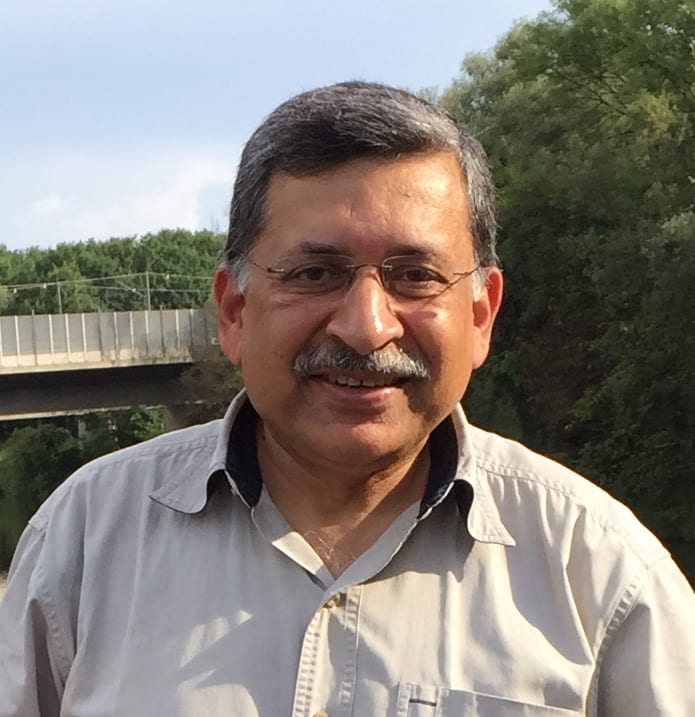


















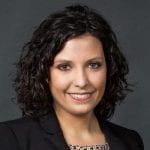







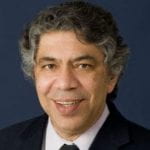




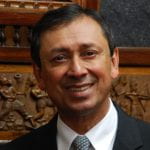






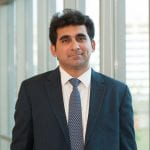








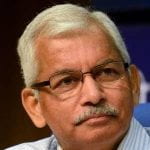



 Nils Grede assumed the position of World Food Programme Representative (WFP) for Turkey in September 2017. Before arriving to Turkey, he was the Representative in El Salvador. Prior to his current position, Mr. Grede gained experience as WFP Deputy Director in Jakarta, Indonesia (2013-2014). He temporarily served as WFP Interim Deputy Director in Brazzaville, Congo (2013) and WFP Interim Country Director in Mbabane, Swaziland (2012-2013). Before that he was Deputy Chief of Nutrition and HIV/AIDS Policy at WFP’s Headquarters. Prior to joining WFP, he was Director of International Recruitment Marketing at Boston Consulting Group (2008 and 2009) and Principal Director at Boston Consulting Group in Los Angeles, California (2001-2005). Mr. Grede is a German national and is fluent in eight languages: German, English, Spanish, French, Italian, Portuguese, Arabic, Hebrew. He is quickly working on improving his Turkish. He holds a Bachelor’s and Master’s degree in Islamic and Middle Eastern Sciences received from the Hebrew University of Jerusalem, Israel. Grede has also received an MBA from Stanford University.
Nils Grede assumed the position of World Food Programme Representative (WFP) for Turkey in September 2017. Before arriving to Turkey, he was the Representative in El Salvador. Prior to his current position, Mr. Grede gained experience as WFP Deputy Director in Jakarta, Indonesia (2013-2014). He temporarily served as WFP Interim Deputy Director in Brazzaville, Congo (2013) and WFP Interim Country Director in Mbabane, Swaziland (2012-2013). Before that he was Deputy Chief of Nutrition and HIV/AIDS Policy at WFP’s Headquarters. Prior to joining WFP, he was Director of International Recruitment Marketing at Boston Consulting Group (2008 and 2009) and Principal Director at Boston Consulting Group in Los Angeles, California (2001-2005). Mr. Grede is a German national and is fluent in eight languages: German, English, Spanish, French, Italian, Portuguese, Arabic, Hebrew. He is quickly working on improving his Turkish. He holds a Bachelor’s and Master’s degree in Islamic and Middle Eastern Sciences received from the Hebrew University of Jerusalem, Israel. Grede has also received an MBA from Stanford University. Felix Schmieding is a Senior Statistician with the World Bank – UNHCR Joint Data Center on Forced Displacement. Earlier work includes assignments with UNHCR, UNDP, and the UN Statistics Division. Felix has implemented or provided technical assistance to numerous statistical activities in Asia, Africa, and the Caribbean – including living conditions surveys, labour force surveys, population censuses, and administrative registers. He has worked closely with the National Statistical Offices and National Statistical Systems of various countries, building technical and institutional capacity. He has also held key roles in global processes aiming at the development of international statistical standards under the auspices of the UN Statistical Commission. Felix has advised on the analysis of multi-dimensional poverty on various occasions, including for the 2012 population census in Rwanda and a 2018 survey of refugees in Kenya. He holds an M.Sc degree from the University of Oxford.
Felix Schmieding is a Senior Statistician with the World Bank – UNHCR Joint Data Center on Forced Displacement. Earlier work includes assignments with UNHCR, UNDP, and the UN Statistics Division. Felix has implemented or provided technical assistance to numerous statistical activities in Asia, Africa, and the Caribbean – including living conditions surveys, labour force surveys, population censuses, and administrative registers. He has worked closely with the National Statistical Offices and National Statistical Systems of various countries, building technical and institutional capacity. He has also held key roles in global processes aiming at the development of international statistical standards under the auspices of the UN Statistical Commission. Felix has advised on the analysis of multi-dimensional poverty on various occasions, including for the 2012 population census in Rwanda and a 2018 survey of refugees in Kenya. He holds an M.Sc degree from the University of Oxford. Stephen Kaplan is an Associate Professor of Political Science and International Affairs. Professor Kaplan’s research and teaching interests focus on the frontiers of international and comparative political economy, where he specializes in the political economy of global finance and development, the rise of China in the Western Hemisphere, and Latin American politics.
Stephen Kaplan is an Associate Professor of Political Science and International Affairs. Professor Kaplan’s research and teaching interests focus on the frontiers of international and comparative political economy, where he specializes in the political economy of global finance and development, the rise of China in the Western Hemisphere, and Latin American politics.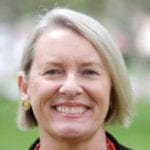 Professor Carol Wise, Department of Political Science and International Relations, University of Southern California (USC), has written widely on trade integration, exchange rate crises, institutional reform, and the political economy of market restructuring in the Latin American region. Wise is author of the book, Dragonomics: How Latin America is Maximizing (or Missing Out) on China’s International Development Strategy (Yale University Press, 2020), which received USC’s Phi Kappa Phi Faculty Recognition Award in 2021 and the Luciano Tomassini 2021 Award-Honorable Mention for the Best Book on International Relations from the Latin American Studies Association. Professor Wise’s most recent journal articles include: “Playing both Sides of the Pacific: Latin America’s Free Trade Agreements (FTAs) with China,” Pacific Affairs (2016); “Conceptualizing China-Latin America Relations in the 21 st Century” (with Victoria Chonn Ching), The Pacific Review (2017); and, “International Trade Norms in the Age of Covid-19” (with Nicolas Albertoni), Fudan Humanities and Social Science Journal (2020). Professor Wise has held Fulbright Grants to Canada, Mexico, and Peru. She is a member of the core social science faculty at Renmin University’s annual International Summer Program, Beijing. In 2019, Wise was the Fulbright-Masaryk University Distinguished Chair in the Czech Republic. Her latest research compares the political economy of development in Latin America and Central/Eastern Europe.
Professor Carol Wise, Department of Political Science and International Relations, University of Southern California (USC), has written widely on trade integration, exchange rate crises, institutional reform, and the political economy of market restructuring in the Latin American region. Wise is author of the book, Dragonomics: How Latin America is Maximizing (or Missing Out) on China’s International Development Strategy (Yale University Press, 2020), which received USC’s Phi Kappa Phi Faculty Recognition Award in 2021 and the Luciano Tomassini 2021 Award-Honorable Mention for the Best Book on International Relations from the Latin American Studies Association. Professor Wise’s most recent journal articles include: “Playing both Sides of the Pacific: Latin America’s Free Trade Agreements (FTAs) with China,” Pacific Affairs (2016); “Conceptualizing China-Latin America Relations in the 21 st Century” (with Victoria Chonn Ching), The Pacific Review (2017); and, “International Trade Norms in the Age of Covid-19” (with Nicolas Albertoni), Fudan Humanities and Social Science Journal (2020). Professor Wise has held Fulbright Grants to Canada, Mexico, and Peru. She is a member of the core social science faculty at Renmin University’s annual International Summer Program, Beijing. In 2019, Wise was the Fulbright-Masaryk University Distinguished Chair in the Czech Republic. Her latest research compares the political economy of development in Latin America and Central/Eastern Europe. Roselyn Hsueh is an Associate Professor of Political Science at Temple University in Philadelphia, where she codirects the Certificate in Political Economy. She is the recipient of the Fulbright Global Scholar Award for research in India, Mexico, and Russia. Her next book, Micro-Institutional Foundations of Capitalism: Sectoral Pathways to Globalization in China, India, and Russia, is under contract with Cambridge University Press. She is the author of China’s Regulatory State: A New Strategy for Globalization (Cornell, 2011), and scholarly articles and book chapters. BBC World News, The Economist, Foreign Affairs, National Public Radio, The Washington Post, and other media outlets have featured her research. She has testified before the U.S.-China Economic and Security Review Commission and consulted for The Center for Strategic and International Studies. Dr. Hsueh has served as a Global Order Visiting Scholar at the University of Pennsylvania, member of the Georgetown Initiative for U.S.-China Dialogue on Global Issues, and Residential Research Faculty Fellow at U.C. Berkeley. She also lectured as a Visiting Professor at Tecnológico de Monterrey in Mexico. She held the Hayward R. Alker Postdoctoral Fellowship at the University of Southern California and conducted international fieldwork in China, Japan, and Taiwan as a U.S. Fulbright Scholar and David L. Boren National Security Fellow. She earned her B.A. and doctorate in Political Science from the University of California, Berkeley.
Roselyn Hsueh is an Associate Professor of Political Science at Temple University in Philadelphia, where she codirects the Certificate in Political Economy. She is the recipient of the Fulbright Global Scholar Award for research in India, Mexico, and Russia. Her next book, Micro-Institutional Foundations of Capitalism: Sectoral Pathways to Globalization in China, India, and Russia, is under contract with Cambridge University Press. She is the author of China’s Regulatory State: A New Strategy for Globalization (Cornell, 2011), and scholarly articles and book chapters. BBC World News, The Economist, Foreign Affairs, National Public Radio, The Washington Post, and other media outlets have featured her research. She has testified before the U.S.-China Economic and Security Review Commission and consulted for The Center for Strategic and International Studies. Dr. Hsueh has served as a Global Order Visiting Scholar at the University of Pennsylvania, member of the Georgetown Initiative for U.S.-China Dialogue on Global Issues, and Residential Research Faculty Fellow at U.C. Berkeley. She also lectured as a Visiting Professor at Tecnológico de Monterrey in Mexico. She held the Hayward R. Alker Postdoctoral Fellowship at the University of Southern California and conducted international fieldwork in China, Japan, and Taiwan as a U.S. Fulbright Scholar and David L. Boren National Security Fellow. She earned her B.A. and doctorate in Political Science from the University of California, Berkeley.
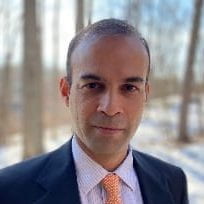
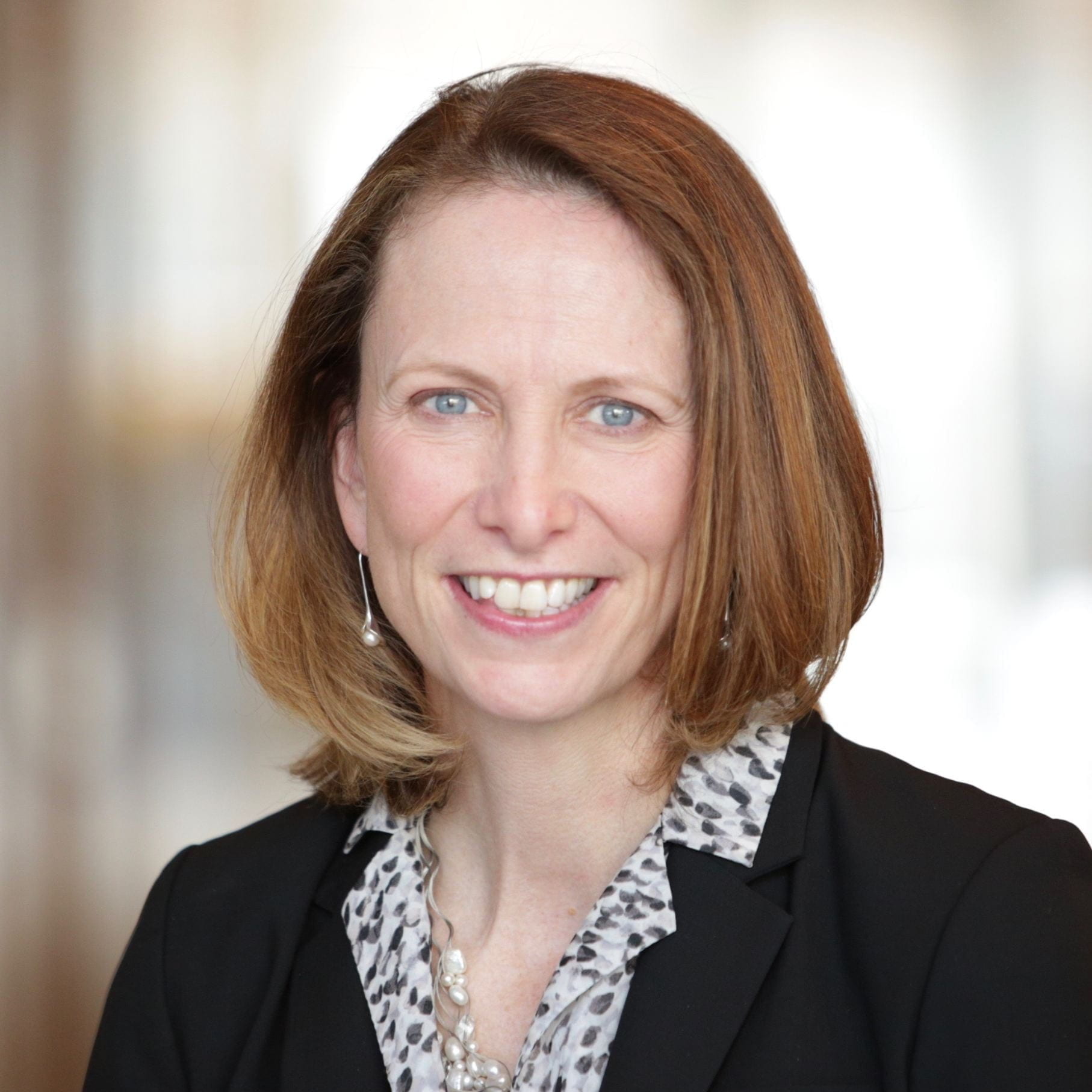

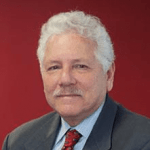 Dr. Danny Leipziger is Professor of International Business and International Affairs at George Washington University, where he is concurrently the Managing Director of the Growth Dialogue. Professor Leipziger has been a faculty member in the highly-ranked International Business Department since 2009, where he has taught both undergraduate and graduate courses on macroeconomics, applied development, financial crises, and international economics, and he has taught in the GW/IFC/Milken Capital Markets Graduate Program for mid-career government officials since its inception. He has been advisor to the governments of South Korea, Vietnam, Ivory Coast, Uzbekistan, Argentina, and South Africa, among others.
Dr. Danny Leipziger is Professor of International Business and International Affairs at George Washington University, where he is concurrently the Managing Director of the Growth Dialogue. Professor Leipziger has been a faculty member in the highly-ranked International Business Department since 2009, where he has taught both undergraduate and graduate courses on macroeconomics, applied development, financial crises, and international economics, and he has taught in the GW/IFC/Milken Capital Markets Graduate Program for mid-career government officials since its inception. He has been advisor to the governments of South Korea, Vietnam, Ivory Coast, Uzbekistan, Argentina, and South Africa, among others.







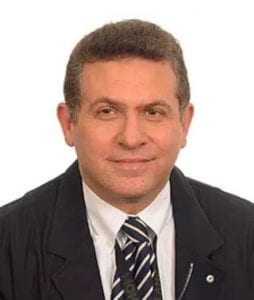






 Rohini Pande is the Henry J. Heinz II Professor of Economics and Director of the Economic Growth Center, Yale University. She is a co-editor of American Economic Review: Insights. Pande’s research is largely focused on how formal and informal institutions shape power relationships and patterns of economic and political advantage in society, particularly in developing countries. She is interested in the role of public policy in providing the poor and disadvantaged political and economic power, and how notions of economic justice and human rights can help justify and enable such change. Her most recent work focuses on testing innovative ways to make the state more accountable to its citizens, such as strengthening women’s economic and political opportunities, ensuring that environmental regulations reduce harmful emissions, and providing citizens effective means to voice their demand for state services. In 2018, Pande received the Carolyn Bell Shaw Award from the American Economic Association for promoting the success of women in the economics profession. She is the co-chair of the Political Economy and Government Group at Jameel Poverty Action Lab (J-PAL), a Board member of Bureau of Research on Economic Development (BREAD) and a former co-editor of The Review of Economics and Statistics. Before coming to Yale, Pande was the Rafik Harriri Professor of International Political Economy at Harvard Kennedy School, where she co-founded Evidence for Policy Design. Pande received a Ph.D. in economics from London School of Economics, a BA/MA in Philosophy, Politics and Economics from Oxford University and a BA in Economics from Delhi University.
Rohini Pande is the Henry J. Heinz II Professor of Economics and Director of the Economic Growth Center, Yale University. She is a co-editor of American Economic Review: Insights. Pande’s research is largely focused on how formal and informal institutions shape power relationships and patterns of economic and political advantage in society, particularly in developing countries. She is interested in the role of public policy in providing the poor and disadvantaged political and economic power, and how notions of economic justice and human rights can help justify and enable such change. Her most recent work focuses on testing innovative ways to make the state more accountable to its citizens, such as strengthening women’s economic and political opportunities, ensuring that environmental regulations reduce harmful emissions, and providing citizens effective means to voice their demand for state services. In 2018, Pande received the Carolyn Bell Shaw Award from the American Economic Association for promoting the success of women in the economics profession. She is the co-chair of the Political Economy and Government Group at Jameel Poverty Action Lab (J-PAL), a Board member of Bureau of Research on Economic Development (BREAD) and a former co-editor of The Review of Economics and Statistics. Before coming to Yale, Pande was the Rafik Harriri Professor of International Political Economy at Harvard Kennedy School, where she co-founded Evidence for Policy Design. Pande received a Ph.D. in economics from London School of Economics, a BA/MA in Philosophy, Politics and Economics from Oxford University and a BA in Economics from Delhi University. Jayati Ghosh taught economics at Jawaharlal Nehru University, New Delhi for nearly 35 years. From January 2020 she will join the University of Massachusetts at Amherst, USA. She has authored and/or edited 19 books (including “Never Done and Poorly Paid: Women’s Work in Globalising India”, Women Unlimited, New Delhi 2009; the co-edited “Elgar Handbook of Alternative Theories of Economic Development, 2014, “Demonetisation Decoded”, Routledge 2017 and “Women workers in the informal economy”, Routledge forthcoming) and nearly 200 scholarly articles. She has received several prizes, including for distinguished contributions to the social sciences in India in 2015; the International Labour Organisation’s Decent Work Research Prize for 2010; the NordSud Prize for Social Sciences 2010, Italy. She has advised governments in India and other countries, including as Chairperson of the Andhra Pradesh Commission on Farmers’ Welfare in 2004, and Member of the National Knowledge Commission of India (2005-09). She is the Executive Secretary of International Development Economics Associates, an international network of heterodox development economists. She has consulted for international organisations including ILO, UNDP, UNCTAD, UN-DESA, UNRISD and UN Women and is member of several international commissions, including the International Commission for the Reform of International Corporate Taxation (ICRICT) and the Commission for Global Economic Transformation of INET. She writes regularly for popular media like newspapers, journals and blogs.
Jayati Ghosh taught economics at Jawaharlal Nehru University, New Delhi for nearly 35 years. From January 2020 she will join the University of Massachusetts at Amherst, USA. She has authored and/or edited 19 books (including “Never Done and Poorly Paid: Women’s Work in Globalising India”, Women Unlimited, New Delhi 2009; the co-edited “Elgar Handbook of Alternative Theories of Economic Development, 2014, “Demonetisation Decoded”, Routledge 2017 and “Women workers in the informal economy”, Routledge forthcoming) and nearly 200 scholarly articles. She has received several prizes, including for distinguished contributions to the social sciences in India in 2015; the International Labour Organisation’s Decent Work Research Prize for 2010; the NordSud Prize for Social Sciences 2010, Italy. She has advised governments in India and other countries, including as Chairperson of the Andhra Pradesh Commission on Farmers’ Welfare in 2004, and Member of the National Knowledge Commission of India (2005-09). She is the Executive Secretary of International Development Economics Associates, an international network of heterodox development economists. She has consulted for international organisations including ILO, UNDP, UNCTAD, UN-DESA, UNRISD and UN Women and is member of several international commissions, including the International Commission for the Reform of International Corporate Taxation (ICRICT) and the Commission for Global Economic Transformation of INET. She writes regularly for popular media like newspapers, journals and blogs. Ajay Chhibber is a Distinguished Visiting Scholar, Institute of International Economic Policy, George Washington University and Non-Resident Senior Fellow, the Atlantic Council, Washington DC. He was earlier Director General, Independent Evaluation Office, Government of India and Distinguished Visiting Professor at the National Institute of Public Finance and Policy (NIPFP), India. He held senior positions at the UN as Assistant Secretary General and Assistant Administrator, UNDP and managed their program for Asia and the Pacific. He also served in senior positions at the World Bank. He has a Ph.D. from Stanford University, a Masters from the Delhi School of Economics. He taught at Georgetown University and at the University of Delhi.
Ajay Chhibber is a Distinguished Visiting Scholar, Institute of International Economic Policy, George Washington University and Non-Resident Senior Fellow, the Atlantic Council, Washington DC. He was earlier Director General, Independent Evaluation Office, Government of India and Distinguished Visiting Professor at the National Institute of Public Finance and Policy (NIPFP), India. He held senior positions at the UN as Assistant Secretary General and Assistant Administrator, UNDP and managed their program for Asia and the Pacific. He also served in senior positions at the World Bank. He has a Ph.D. from Stanford University, a Masters from the Delhi School of Economics. He taught at Georgetown University and at the University of Delhi.
 Bina Agarwal is Professor of Development Economics and Environment at the Global Development Institute, University of Manchester, UK, and former Professor and Director, Institute of Economic Growth, Delhi. She has been President, International Society for Ecological Economics; Vice-President, International Economic Association; President, International Society for Feminist Economics; and held distinguished positions at the Universities of Cambridge, Harvard, Princeton, Michigan, Minnesota, and the New York University School of Law. Dr. Agarwal’s publications include the multiple award-winning book, A Field of One’s Own: Gender and Land Rights in South Asia (Cambridge University Press, 1994), Gender and Green Governance (OUP, 2010) and Gender Challenges (OUP, 2016), a three volume compendium of her selected papers on Agriculture, Property, and the Environment. Her pioneering work on gender inequality in property and land and on environmental governance, has had global impact. Her many awards include a Padma Shri, 2008; book prizes; the Leontief Prize 2010; Louis Malassis Scientific Prize 2017; and the International Balzan Prize, 2017.
Bina Agarwal is Professor of Development Economics and Environment at the Global Development Institute, University of Manchester, UK, and former Professor and Director, Institute of Economic Growth, Delhi. She has been President, International Society for Ecological Economics; Vice-President, International Economic Association; President, International Society for Feminist Economics; and held distinguished positions at the Universities of Cambridge, Harvard, Princeton, Michigan, Minnesota, and the New York University School of Law. Dr. Agarwal’s publications include the multiple award-winning book, A Field of One’s Own: Gender and Land Rights in South Asia (Cambridge University Press, 1994), Gender and Green Governance (OUP, 2010) and Gender Challenges (OUP, 2016), a three volume compendium of her selected papers on Agriculture, Property, and the Environment. Her pioneering work on gender inequality in property and land and on environmental governance, has had global impact. Her many awards include a Padma Shri, 2008; book prizes; the Leontief Prize 2010; Louis Malassis Scientific Prize 2017; and the International Balzan Prize, 2017. Jennifer G. Cooke is director of the Institute for African Studies at The George Washington University Elliott School of International Affairs. The Institute serves as central for research, scholarly discussion, and debate on issues relevant to Africa. She is a professor of practice in international affairs, teaching courses on U.S. Policy Toward Africa and Transnational Security Threats in Africa. Cooke joined George Washington University in August 2018, after 18 years as director of the Africa Program at the Center for Strategic and International Studies (CSIS), where she led research and analysis on political, economic, and security dynamics in Africa. While at CSIS, Cooke directed projects on a wide range of African issues, including on violent extremist organizations in the Sahel and Lake Chad Basin, China’s growing role in Africa, democracy and elections in Nigeria, religion and state authority in Africa, “stress-testing” state stability in Africa, Africa’s changing energy landscape, and more. She is a frequent writer and lecturer on U.S.-Africa policy and has provided briefing, commentary, and testimony to the media, US Congress, AFRICOM leadership and the U.S. military. She has traveled widely in Africa and has been an election observer in Sierra Leone, Ghana, Liberia, Mali, and Nigeria. As a teenager, she lived in Cote d’Ivoire and the Central African Republic. She holds an M.A. in African studies and international economics from the Johns Hopkins University School of Advanced International Studies (SAIS) and a B.A. in government, magna cum laude, from Harvard University.
Jennifer G. Cooke is director of the Institute for African Studies at The George Washington University Elliott School of International Affairs. The Institute serves as central for research, scholarly discussion, and debate on issues relevant to Africa. She is a professor of practice in international affairs, teaching courses on U.S. Policy Toward Africa and Transnational Security Threats in Africa. Cooke joined George Washington University in August 2018, after 18 years as director of the Africa Program at the Center for Strategic and International Studies (CSIS), where she led research and analysis on political, economic, and security dynamics in Africa. While at CSIS, Cooke directed projects on a wide range of African issues, including on violent extremist organizations in the Sahel and Lake Chad Basin, China’s growing role in Africa, democracy and elections in Nigeria, religion and state authority in Africa, “stress-testing” state stability in Africa, Africa’s changing energy landscape, and more. She is a frequent writer and lecturer on U.S.-Africa policy and has provided briefing, commentary, and testimony to the media, US Congress, AFRICOM leadership and the U.S. military. She has traveled widely in Africa and has been an election observer in Sierra Leone, Ghana, Liberia, Mali, and Nigeria. As a teenager, she lived in Cote d’Ivoire and the Central African Republic. She holds an M.A. in African studies and international economics from the Johns Hopkins University School of Advanced International Studies (SAIS) and a B.A. in government, magna cum laude, from Harvard University. Andrew Tiffin is a senior economist at the IMF, working in the regional studies division of the Fund’s African Department. He is also keenly involved in the effort to incorporate artificial intelligence/machine-learning techniques into the standard analytical toolkit of the Fund. Previously, he has worked on Middle Eastern countries, with a particular interest in refugee issues in Jordan and Lebanon, as well as numerous countries in Europe–he was part of the Italy team during the debt crisis of 2012, and part of the Russia team for the global financial crisis of 2008. Raised in Sydney, Andrew is an Australian national. He received his post-graduate training at Princeton University, where he obtained both a Ph.D. in economics and an M.P.A. in international relations. In addition to his work with the Fund, Andrew has held positions at the Reserve Bank of Australia, and with the Australian Government.
Andrew Tiffin is a senior economist at the IMF, working in the regional studies division of the Fund’s African Department. He is also keenly involved in the effort to incorporate artificial intelligence/machine-learning techniques into the standard analytical toolkit of the Fund. Previously, he has worked on Middle Eastern countries, with a particular interest in refugee issues in Jordan and Lebanon, as well as numerous countries in Europe–he was part of the Italy team during the debt crisis of 2012, and part of the Russia team for the global financial crisis of 2008. Raised in Sydney, Andrew is an Australian national. He received his post-graduate training at Princeton University, where he obtained both a Ph.D. in economics and an M.P.A. in international relations. In addition to his work with the Fund, Andrew has held positions at the Reserve Bank of Australia, and with the Australian Government. Louise Fox is an experienced development economist who specializes in strategies for employment creation, opportunity expansion, economic empowerment, and poverty reduction. She has advised governments in the developed and developing world, international organizations, and philanthropic and non-profit organizations on problem diagnosis, strategies for results, and outcome measurement. She held full-time positions at USAID (as Chief Economist) and at the World Bank. She is currently affiliated with the African Growth Initiative at the Brookings Institution and the Blum Center for Developing Economies, University of California, Berkeley. She was previously affiliated with the Overseas Development Institute, where she led a major research project. Louise has published in the areas of inclusive growth, structural transformation, youth employment, the political economy of poverty reduction, gender and women’s economic empowerment, employment, labor markets, and labor regulation, pension reform, reform of child welfare systems, social protection, effective public expenditures in the social sectors, and female-headed households and child welfare. Her most recent book was Youth Employment in Sub-Saharan Africa, published by the World Bank in 2014.
Louise Fox is an experienced development economist who specializes in strategies for employment creation, opportunity expansion, economic empowerment, and poverty reduction. She has advised governments in the developed and developing world, international organizations, and philanthropic and non-profit organizations on problem diagnosis, strategies for results, and outcome measurement. She held full-time positions at USAID (as Chief Economist) and at the World Bank. She is currently affiliated with the African Growth Initiative at the Brookings Institution and the Blum Center for Developing Economies, University of California, Berkeley. She was previously affiliated with the Overseas Development Institute, where she led a major research project. Louise has published in the areas of inclusive growth, structural transformation, youth employment, the political economy of poverty reduction, gender and women’s economic empowerment, employment, labor markets, and labor regulation, pension reform, reform of child welfare systems, social protection, effective public expenditures in the social sectors, and female-headed households and child welfare. Her most recent book was Youth Employment in Sub-Saharan Africa, published by the World Bank in 2014. Seung Mo Choi is a Senior Economist working on regional surveillance in the IMF’s African Department. He has worked on banking crises, financial market policies, climate change, low-income country issues, and capacity development, including in the IMF’s European Department and in the Institute for Capacity Development. His research has been published in economics and finance journals such as International Economic Review. Prior to joining the IMF, he worked as an Assistant Professor at Washington State University and obtained a Ph.D. in economics from the University of Chicago and a B.A. in economics from Seoul National University.
Seung Mo Choi is a Senior Economist working on regional surveillance in the IMF’s African Department. He has worked on banking crises, financial market policies, climate change, low-income country issues, and capacity development, including in the IMF’s European Department and in the Institute for Capacity Development. His research has been published in economics and finance journals such as International Economic Review. Prior to joining the IMF, he worked as an Assistant Professor at Washington State University and obtained a Ph.D. in economics from the University of Chicago and a B.A. in economics from Seoul National University. Stephen C. Smith is Professor of Economics and International Affairs at George Washington University. In 2018 he was UNICEF Senior Fellow at the UNICEF Office of Research-Innocenti, Florence, Italy. Smith received his Ph.D. in Economics from Cornell University and has been a Fulbright Research Scholar, a Jean Monnet Research Fellow, a Visiting Fellow at the Brookings Institution, a Nonresident Senior Fellow at Brookings, a Fulbright Senior Specialist, a member of the Advisory Council of BRAC USA, and an Associate Editor of the Journal of Economic Behavior and Organization. He has twice served as Director of the Institute for International Economic Policy at GWU. Smith is the co-author with Michael Todaro of Economic Development (12th Edition, Pearson, 2014). He is also author of Ending Global Poverty: A Guide to What Works (paperback edition Palgrave Macmillan, 2009), and co-editor with Jennifer Brinkerhoff and Hildy Teegen of NGOs and the Millennium Development Goals: Citizen Action to Reduce Poverty (Palgrave Macmillan, 2007). He is also author or coauthor of about 45 professional journal articles and many other publications. Smith’s recent research has focused on extreme poverty and strategies and programs to address it; and on the economics of adaptation and resilience to climate change in low-income countries, emphasizing autonomous adaptation by households and communities and its effects, and adaptation financing.
Stephen C. Smith is Professor of Economics and International Affairs at George Washington University. In 2018 he was UNICEF Senior Fellow at the UNICEF Office of Research-Innocenti, Florence, Italy. Smith received his Ph.D. in Economics from Cornell University and has been a Fulbright Research Scholar, a Jean Monnet Research Fellow, a Visiting Fellow at the Brookings Institution, a Nonresident Senior Fellow at Brookings, a Fulbright Senior Specialist, a member of the Advisory Council of BRAC USA, and an Associate Editor of the Journal of Economic Behavior and Organization. He has twice served as Director of the Institute for International Economic Policy at GWU. Smith is the co-author with Michael Todaro of Economic Development (12th Edition, Pearson, 2014). He is also author of Ending Global Poverty: A Guide to What Works (paperback edition Palgrave Macmillan, 2009), and co-editor with Jennifer Brinkerhoff and Hildy Teegen of NGOs and the Millennium Development Goals: Citizen Action to Reduce Poverty (Palgrave Macmillan, 2007). He is also author or coauthor of about 45 professional journal articles and many other publications. Smith’s recent research has focused on extreme poverty and strategies and programs to address it; and on the economics of adaptation and resilience to climate change in low-income countries, emphasizing autonomous adaptation by households and communities and its effects, and adaptation financing. Preya Sharma is a senior economist in the African Department of the IMF where she is Special Assistant to the Director. Her research has focused on structural transformation, the future of work, and digitalization in sub-Saharan Africa, as well as emerging market crises and development. Before joining the IMF she was the Head of Emerging Markets at HM Treasury in the UK. She holds a Masters in Public Administration in International Development from the Harvard Kennedy School and a BSc in Economics from the London School of Economics.
Preya Sharma is a senior economist in the African Department of the IMF where she is Special Assistant to the Director. Her research has focused on structural transformation, the future of work, and digitalization in sub-Saharan Africa, as well as emerging market crises and development. Before joining the IMF she was the Head of Emerging Markets at HM Treasury in the UK. She holds a Masters in Public Administration in International Development from the Harvard Kennedy School and a BSc in Economics from the London School of Economics.

